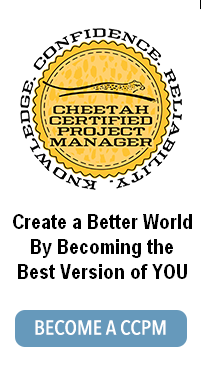Jean Binder, PMP – Winner of the PMI Literature Award for Global Project Management
Sunday, November 2nd, 2008I met Jean Binder, PMP at the PMI Global Congress 2008 Awards Ceremony. Jean was the recipient of the PMI Literature Award for his book Global Project Management.
Jean agreed to answer a several questions I had about his book:
1. What inspired you to write Global Project Management?
Back in 2003 I accepted a project management assignment in a small English town, without knowing about the project teams I would be leading. I was expecting to meet them during my first day of work, when I discovered that 90% of my team was based in Switzerland, and the key customers were in London, a 3-hours drive (at best) from my office. My first reaction was to panic, thinking about all the hours I would spend on the road and away from my family. My second reaction was even worse, after I discovered that my mission was to reduce travel to a minimum and make use of the audio and videoconferencing services. I will never forget the sentence from one of the company directors: “You have a modern video-conferencing room, good audio-conferencing bridges, face-to-face meetings are not really important”.
After I calmed down, I tried to look for research and books in the area, and I discovered several disconnected pieces of information, with recommendations that were more applicable to virtual teams (when the manager has the hierarchical power). I then realized a big gap in the project management knowledge and decided to create a holistic framework, at first by academic research, and then by writing a textbook.
2. How have your approaches to doing project management changed because of what you learned writing the book?
I am much more optimistic. Besides knowing the challenges of global projects, now I also understand how to make use of global teams to increase the levels of creativity and collaboration. I also use many techniques that avoid misunderstanding and reduce the time I spend on the communication and administrative tasks. I learned to focus more on the project objectives and use only the tools and templates that really add value to the project management activities.
3. What is the biggest contribution your book has made to the field of project management according to the people who have read it?
The book provides a comprehensive framework that covers most of the challenges people face in real projects, and the key recommendations from academic studies, textbooks and practitioners. Using the book you don’t need to spend time surfing the web and online bookstores to find different pieces of information. The framework provides the main recommendations, and also references to other sources of information, for the readers that want to have a deep understanding of selected topics.
4. What are the top three things people need to do to improve the way they manage projects globally?
Based on my personal experience, I believe that the first step is to not despair and realize that global projects require a different skill set and a very strong understanding of communication and collaboration techniques. The second step is to understand which modules from the framework are relevant to your own situation, as each project is different. The third step is to use the knowledge in each selected module to build solid skills on cross-cultural project management across time zones, using collaborative tools and techniques, and to organize frequent lessons learned sessions to collect feedback from your project team, continuously improving your skills and the tools, processes, techniques and templates available.
5. What are your plans on updating techniques that are technology driven (which changes very rapidly)?
In the book I only discuss the overall concepts and general techniques, talking very briefly about software and hardware tools. I created a website (www.GlobalProjectManagement.org) to capture a more detailed list of tools and services, which can be easily kept up-to-date. This site also collects standpoints from other authors that are of interest to global project managers, allowing a continuous improvement of the framework and the knowledge within.
6. How do you think that world is improving because of this fantastic body of knowledge you have assembled?
The modest side of me thinks that this book is like a wave to the ocean of the project management body of knowledge, having a very limited influence on the “world”… the other side believes that global project managers can learn to see the positive side of the challenges from cross-cultural and virtual teams, and use innovative techniques to improve their work-life balance and reduce the level of conflict and stress in their projects. If a handful of people provide me such a feedback, I believe that my mission to improve the world is well accomplished!
Jean Binder, PMP is also an alumni of Cheetah Learning’s Accelerated PMP Program.


